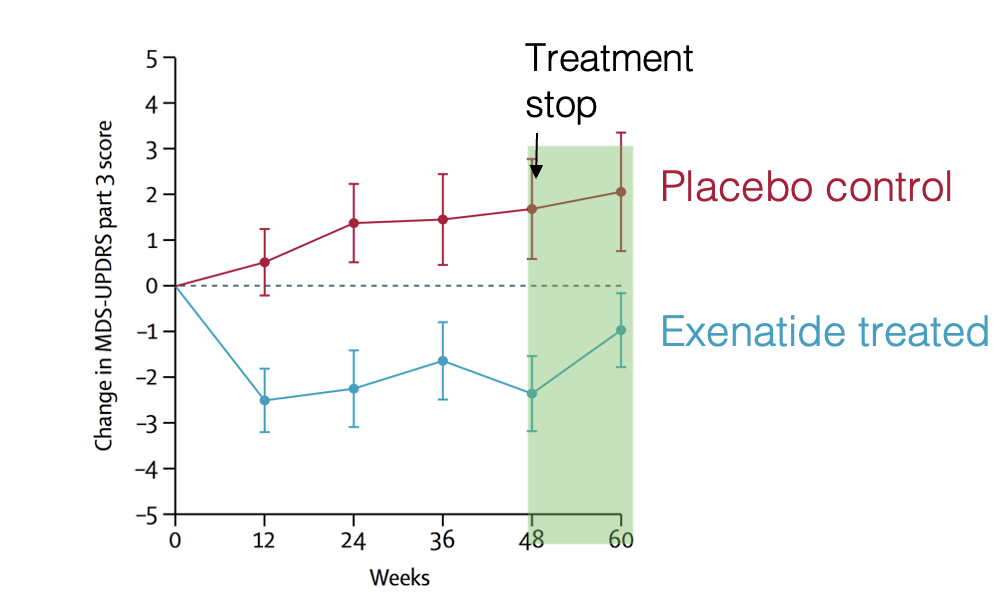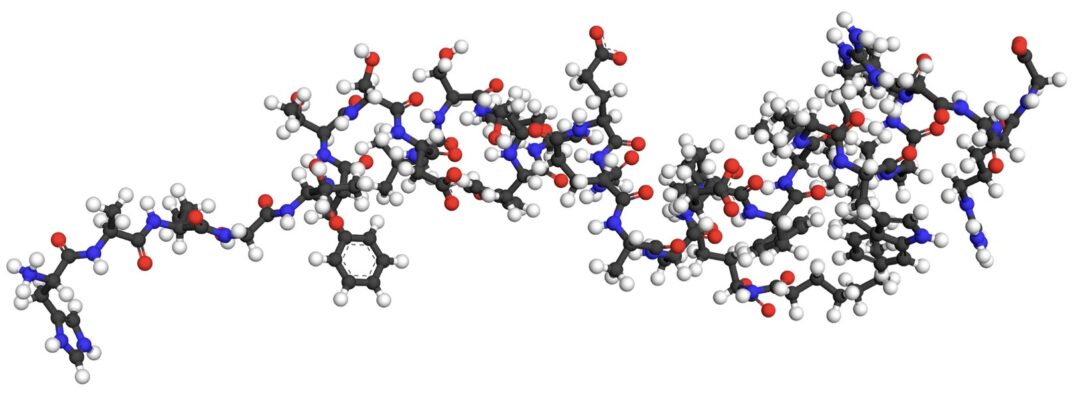In my recent article I talked about the urgent need to find a cure for Parkinson’s. I am super excited to say that we have some early positive indications that continue to raise our confidence that we might soon have a substance that is curative.
I am part of a Phase III trial taking place in the UK, of an existing diabetes drug, called exenatide. Its primary goal is to stimulate the pancreas to more efficiently produce insulin. But we also believe that it may have neuro-protective qualities that could be vital to some Parkinson’s patients, in slowing down or stopping their disease progression.

I am six months into a two-year trial. I inject myself with exenatide every week (possibly a placebo). And then periodically undergo a thorough Parkinson’s evaluation with and without my normal medicines. As I mentioned in my previous article the phase II results were promising, with some trialists showing a slowing down of their disease progression. And so, we are now in the midst of Phase III with a larger cohort of trialists from across the Parkinson’s community in the UK.
There is a separate study in the US, also sponsored by Cure Parkinson’s, with a similar goal. The trial is of a very similar drug called liraglutide. Liraglutide has a similar action to exenatide, is used to treat diabetes, and stimulates the pancreas in the same way.
Researchers from Cedars Sinai Hospital, Los Angeles have presented their initial top line results of the liraglutide trial, at the recent American Association of Neurology annual meeting. The results indicate that liraglutide improves aspects of daily living and non-motor symptoms in people with Parkinson’s. Medical database studies have also shown that people with diabetes taking this medicine have a reduced risk of developing Parkinson’s. Read More….
These results are an encouraging and critical step in our pursuit of therapies that slow or stop Parkinson’s progression. We believe diabetes medications, such as liraglutide, hold particular promise and look forward to additional results from the trial.
Patrik Brundin, Professor of neuroscience, Van Andel Institute
This is great news, but…..
If multiple independent trials around the world point in the same direction, then it represents a confirmation that the thesis is correct, and the drug has the expected benefit, rather than one rogue piece of research that is overly optimistic. There are in fact other similar trials of this group of drugs in other countries happening right now. As they report their results, we end up with a sort of federated set of trial results. Fingers crossed that all continue to point in the same direction, that these drugs slow or stop the progression of Parkinson’s.
Multiple Cures
One word of caution. Not everyone with Parkinson’s will respond to this treatment. It seems to work with some people not others. There will likely not be one “cure” for Parkinson’s. There will likely be a suite of disease modifying drugs, with different qualities for different people with Parkinson’s. Which is why we can’t take our foot of the gas, in terms of continuing to research new substances, to which other people with Parkinson’s may respond. Cure Parkinson’s have a “backlog” of 43 that have been prioritised for investigation by their international committee of some of the world’s leading Neuroscientists.
Given the current funding profile of the charity, working through this list (and the additional candidate drugs that will be added to the list as we move forwards) will take many years.

That’s why as the Chairman of their Development Board, along with my fellow committee members, we are working urgently to increase funding, to do more research more quickly, so that we stop Parkinson’s in its tracks. And cure everyone with Parkinsons!
If you’d like to make a donation to this important work, please take a look at my fund raising page.
Thanks so much,
Phill Robinson.





No Comments